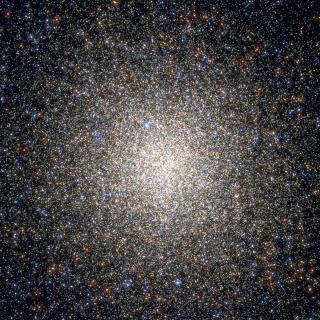Bibcode
Marino, A. F.; Milone, A. P.; Piotto, G.; Cassisi, S.; D'Antona, F.; Anderson, J.; Aparicio, A.; Bedin, L. R.; Renzini, A.; Villanova, S.
Bibliographical reference
The Astrophysical Journal, Volume 746, Issue 1, article id. 14 (2012).
Advertised on:
2
2012
Journal
Citations
112
Refereed citations
92
Description
We present a chemical-composition analysis of 77 red-giant stars in
Omega Centauri. We have measured abundances for carbon and nitrogen, and
combined our results with abundances of O, Na, La, and Fe that we
determined in our previous work. Our aim is to better understand the
peculiar chemical-enrichment history of this cluster by studying how the
total C+N+O content varies among the different metallicity stellar
groups, and among stars at different places along the Na-O
anticorrelation. We find that the (anti)correlations among the light
elements that would be expected on theoretical grounds for matter that
has been nuclearly processed via high-temperature proton captures. The
overall [(C+N+O)/Fe] increases by ~0.5 dex from [Fe/H] ~-2.0 to
[Fe/H] ~-0.9. Our results provide insight into the
chemical-enrichment history of the cluster, and the measured CNO
variations provide important corrections for estimating the relative
ages of the different stellar populations.
Based on data collected at the European Southern Observatory with the
FLAMES/GIRAFFE spectrograph.
Related projects

Milky Way and Nearby Galaxies
The general aim of the project is to research the structure, evolutionary history and formation of galaxies through the study of their resolved stellar populations, both from photometry and spectroscopy. The group research concentrates in the most nearby objects, namely the Local Group galaxies including the Milky Way and M33 under the hypothesis
Martín
López Corredoira